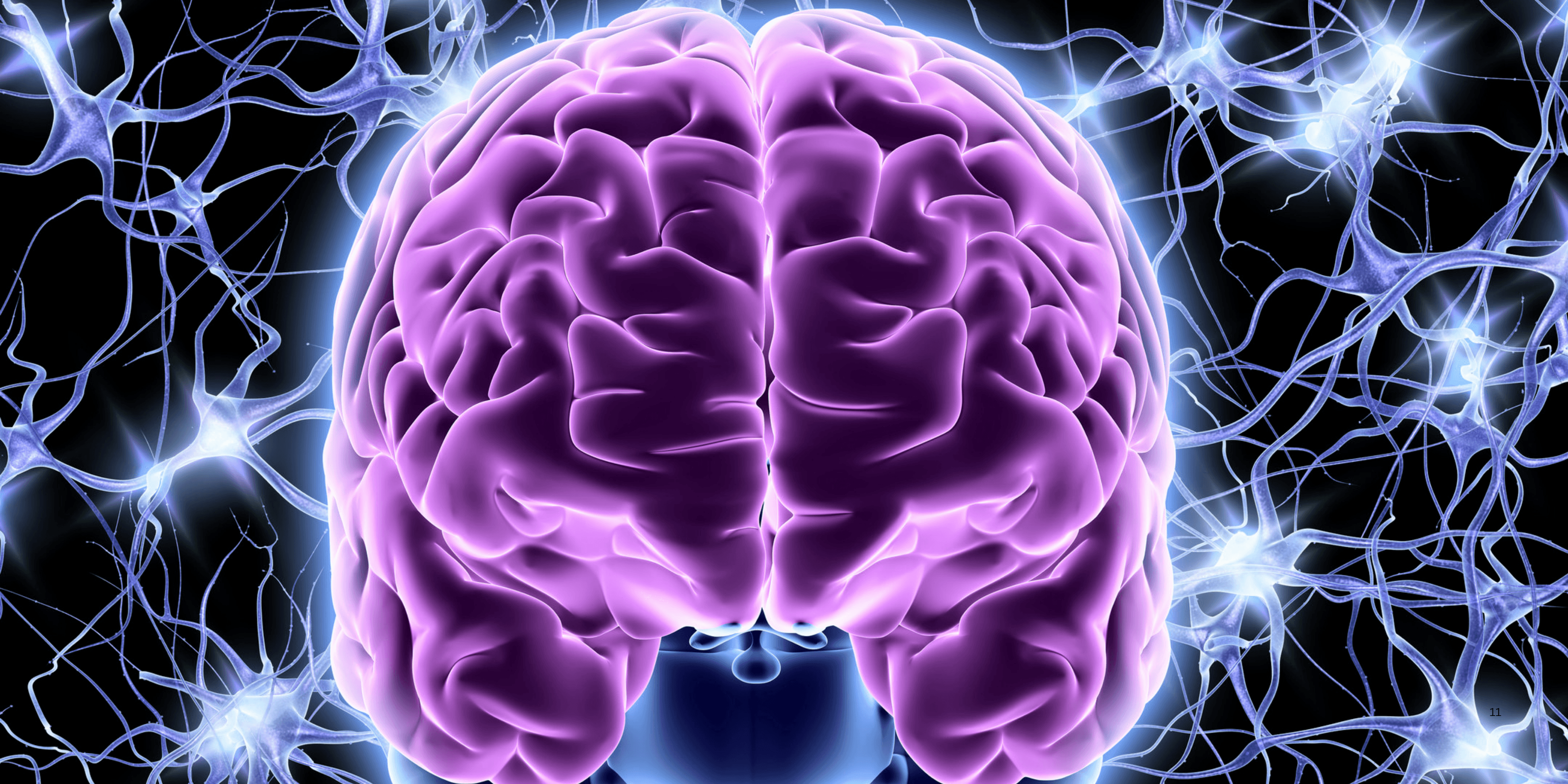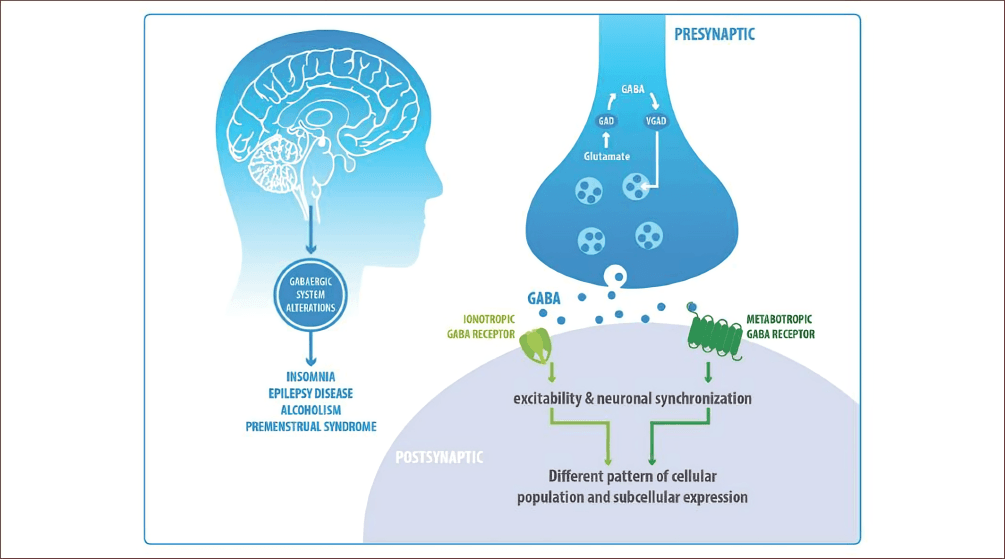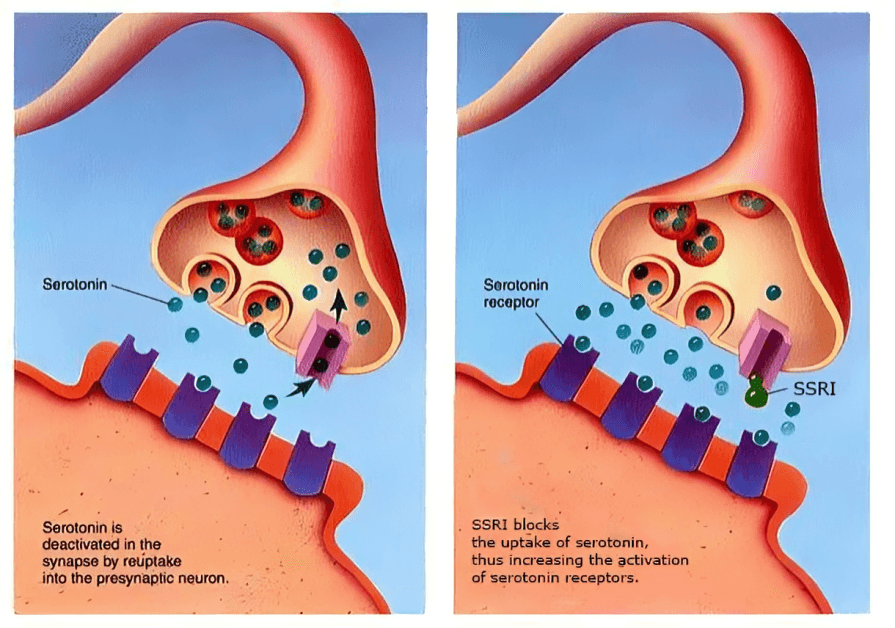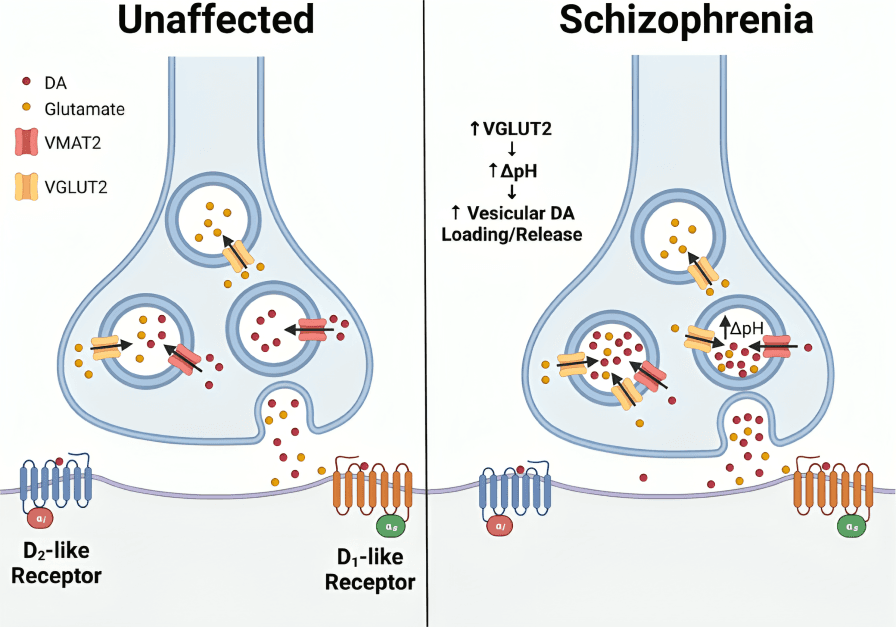
“
Neuron communication in mental health plays a vital role in how our brain interprets emotions, thoughts, and behaviors. These complex interactions among neurons involve electrical signals and chemical messengers known as neurotransmitters. Any disturbance in this delicate system can contribute to mental health conditions such as depression, anxiety, bipolar disorder, and schizophrenia. 1
1
”
Neurons communicate using electrical impulses and neurotransmitters, transmitting signals across synapses to other neurons, muscles, or glands, deeply influencing our decisions and emotional balance. 1
The neurotransmitter serotonin regulates mood, sleep, and appetite. Low serotonin levels are linked to depression, anxiety, and suicidal thoughts, highlighting the brain’s chemical role in mental health. 2

Gamma-aminobutyric acid (GABA) helps reduce neuronal excitability. Low GABA activity is linked to anxiety disorders, showing how inhibitory signals are essential for maintaining calmness and psychological balance.
Glutamate is the brain’s main excitatory neurotransmitter. While vital for learning and memory, excess glutamate is neurotoxic and linked to conditions such as schizophrenia and bipolar disorder. 3
When communication between the prefrontal cortex and amygdala is disrupted, it affects decision-making and emotional regulation, a hallmark in conditions like PTSD and borderline personality disorder. 4
The brain’s limbic system processes emotions and is heavily influenced by neuron signaling. Imbalances here contribute to mood swings and disorders like depression or bipolar affective disorder. 5
Myelin sheaths covering axons speed up signal transmission. Demyelination, seen in conditions like multiple sclerosis, slows neural communication and may trigger mood and cognitive symptoms. 6
Chronic stress raises cortisol, disrupting hippocampal neurons and affecting memory, mood, and emotion. Over time, it alters neuron communication, contributing to anxiety and depression.7
In people with depression, functional imaging shows lower activity in the dorsolateral prefrontal cortex, suggesting a breakdown in communication between regions involved in cognitive control and emotion. 8

Antidepressants like SSRIs work by increasing serotonin in synaptic spaces, improving communication between neurons, which helps regulate mood and reduce anxiety and depressive symptoms over time.
Neurons in the hypothalamus regulate the release of hormones like oxytocin and cortisol. These signals influence emotions, bonding, and stress response, which play a central role in mental health. 9
Sleep strengthens synaptic connections, allowing better neuron communication. Disrupted sleep patterns impair brain signal coordination, worsening anxiety, depression, and overall emotional regulation. 10
Childhood trauma can alter neuron communication long-term, especially in the amygdala and hippocampus, affecting fear response and emotional memory, which increases vulnerability to mental health issues. 11
Social interactions activate mirror neurons, which help us understand others’ emotions. Impaired mirror neuron activity is observed in autism and schizophrenia, disrupting empathy and social processing. 12
In bipolar disorder, changes in ion channel function impact how neurons fire, contributing to mood shifts. This disruption alters brain connectivity, especially between the limbic system and the frontal lobe. 13

In schizophrenia, disruptions in glutamate and dopamine signaling affect neuron connectivity, causing hallucinations, disorganized thinking, and emotional detachment due to impaired brain coordination.
Neuropeptides like endorphins influence emotion and stress. They bind to receptors on neurons, acting as messengers of well-being, especially in physical exercise or moments of joy and relief. 14
Early exposure to environmental toxins like lead can damage neurons and interfere with communication, increasing the risk of developmental delays, attention disorders, and emotional dysregulation in children. 15
Electroconvulsive therapy (ECT) resets abnormal neuron communication patterns in severe depression by inducing controlled seizures, which can rapidly improve mood when medications are ineffective. 16
Dr. Eric Kandel, a Nobel laureate, showed how learning alters neuron communication at synapses, proving that experiences reshape the brain and influence long-term mental health.17


